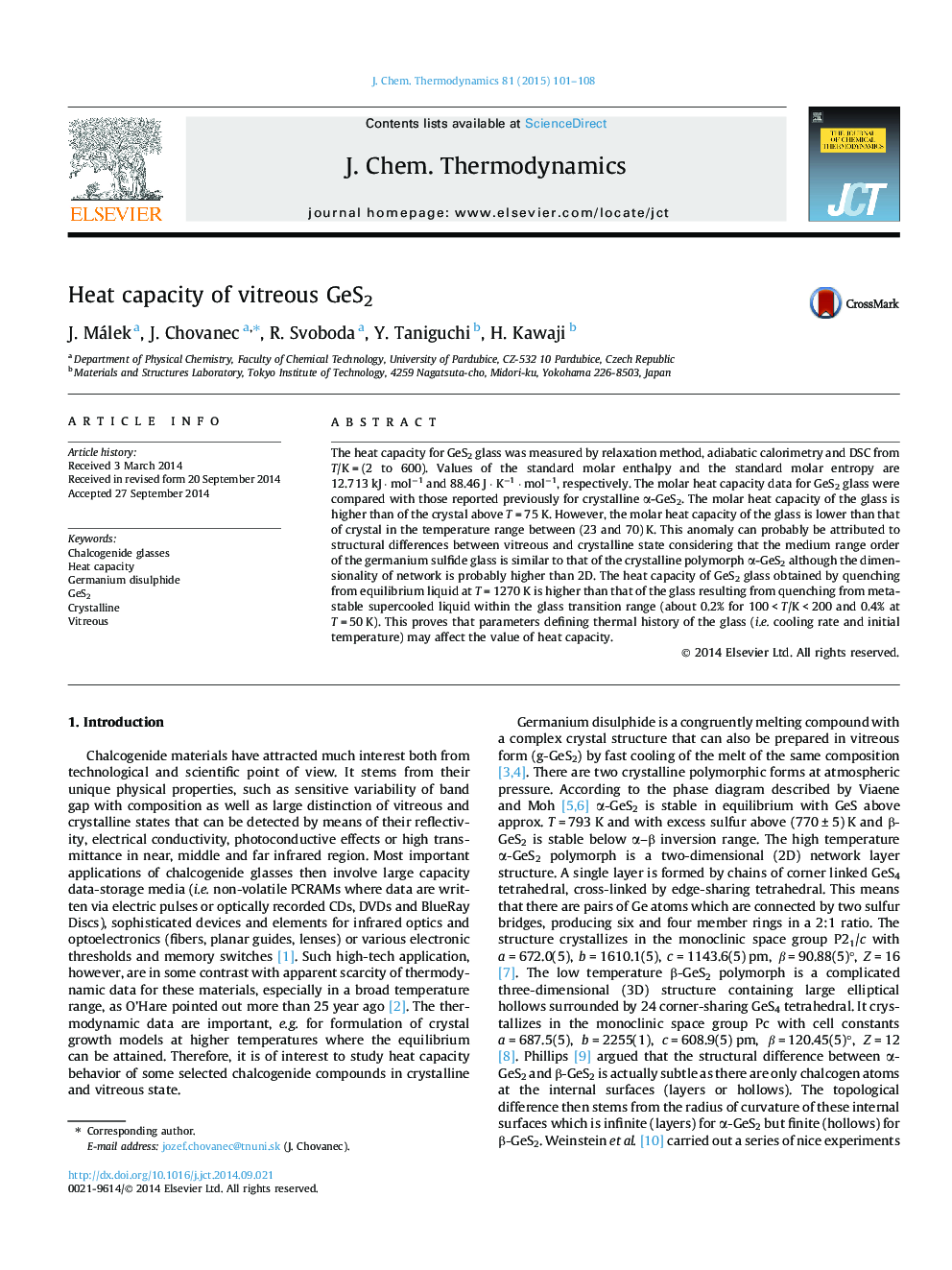| Article ID | Journal | Published Year | Pages | File Type |
|---|---|---|---|---|
| 6660624 | The Journal of Chemical Thermodynamics | 2015 | 8 Pages |
Abstract
The heat capacity for GeS2 glass was measured by relaxation method, adiabatic calorimetry and DSC from T/K = (2 to 600). Values of the standard molar enthalpy and the standard molar entropy are 12.713 kJ · molâ1 and 88.46 J · Kâ1 · molâ1, respectively. The molar heat capacity data for GeS2 glass were compared with those reported previously for crystalline α-GeS2. The molar heat capacity of the glass is higher than of the crystal above T = 75 K. However, the molar heat capacity of the glass is lower than that of crystal in the temperature range between (23 and 70) K. This anomaly can probably be attributed to structural differences between vitreous and crystalline state considering that the medium range order of the germanium sulfide glass is similar to that of the crystalline polymorph α-GeS2 although the dimensionality of network is probably higher than 2D. The heat capacity of GeS2 glass obtained by quenching from equilibrium liquid at T = 1270 K is higher than that of the glass resulting from quenching from metastable supercooled liquid within the glass transition range (about 0.2% for 100 < T/K < 200 and 0.4% at T = 50 K). This proves that parameters defining thermal history of the glass (i.e. cooling rate and initial temperature) may affect the value of heat capacity.
Related Topics
Physical Sciences and Engineering
Chemical Engineering
Chemical Engineering (General)
Authors
J. Málek, J. Chovanec, R. Svoboda, Y. Taniguchi, H. Kawaji,
